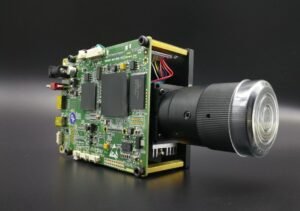AI Production Planning
Artificial Intelligence (AI) has revolutionized various industries, and the manufacturing sector is no exception. AI-powered production planning systems have gained significant popularity due to their ability to optimize manufacturing processes, increase efficiency, and reduce costs. This article delves into the importance of AI in production planning and highlights its benefits for businesses.
Key Takeaways
- AI-powered production planning systems optimize manufacturing processes.
- AI improves efficiency and reduces costs in production planning.
- Machine learning algorithms help in data analysis and decision-making.
- Real-time monitoring and predictive analytics enable proactive planning.
The Role of AI in Production Planning
AI plays a crucial role in production planning by leveraging its advanced algorithms to automate and optimize various aspects of the manufacturing process. *These systems analyze historical data, market trends, and other relevant factors to generate accurate forecasts and make informed decisions.*
By utilizing AI technologies, businesses can achieve efficient resource allocation, better demand forecasting, and enhanced production scheduling. The integration of AI in production planning also enables real-time tracking and monitoring of manufacturing processes, allowing prompt identification and resolution of bottlenecks or issues.
Furthermore, AI-powered systems can dynamically adapt to changing scenarios, making them highly flexible and capable of responding to unexpected disruptions or changes in demand.
The Benefits of AI in Production Planning
The implementation of AI in production planning offers several benefits that can significantly impact a business’s operations and success. These benefits include:
- Optimized Production Processes: AI algorithms analyze vast amounts of data to identify inefficiencies in current production processes and propose optimized solutions. This improves overall productivity and reduces waste.
- Enhanced Efficiency: By automating repetitive tasks and providing real-time insights, AI streamlines production planning, saving time and effort. This allows employees to focus on more strategic and value-added activities.
- Cost Reduction: AI-based production planning systems optimize resource allocation, minimize downtime, and reduce inventory levels. These cost-saving measures result in improved profitability for businesses.
- Improved Accuracy: Machine learning algorithms analyze historical data to generate accurate demand forecasts. This enables businesses to make better-informed decisions and avoid overproduction or stockouts.
Examples of AI in Production Planning
AI is utilized in various ways within production planning processes. Here are a few examples:
- Demand Forecasting: AI algorithms analyze historical sales data, market trends, weather patterns, and other relevant factors to accurately predict demand for products or services. This helps businesses optimize inventory levels and production schedules.
- Production Scheduling: AI systems automatically generate optimal production schedules, considering factors such as resource availability, order deadlines, and production line constraints. This ensures efficient utilization of resources and minimizes production delays.
- Quality Control: AI-powered image recognition and machine learning algorithms can detect product defects or anomalies during the manufacturing process. This enables manufacturers to identify and rectify quality issues before products reach the customers.
AI Production Planning Solutions
Several AI production planning solutions are available in the market today. These solutions leverage AI technologies like machine learning and predictive analytics to improve production planning processes. Below are some notable AI production planning software:
| Software | Features | Benefits |
|---|---|---|
| System A | Machine learning algorithms, real-time monitoring, predictive analytics | Optimized production, proactive planning, cost reduction |
| System B | Demand forecasting, production scheduling, resource optimization | Improved accuracy, enhanced efficiency, minimized delays |
| System C | Quality control, defect detection, automated inspection | Enhanced product quality, reduced defects, customer satisfaction |
Conclusion
AI has brought a new era of efficiency and optimization to production planning in the manufacturing industry. With its power to analyze vast amounts of data and make accurate forecasts, AI empowers businesses to streamline processes, reduce costs, and improve overall productivity. Embracing AI-powered production planning systems is key to staying competitive in today’s rapidly evolving manufacturing landscape.

Common Misconceptions
Misconception #1: AI Production Planning Replaces Human Workers
One common misconception about AI production planning is that it will eventually replace human workers in the manufacturing industry. However, this is not the case. While AI can automate certain tasks and streamline production processes, it cannot completely replace the skills and expertise of human workers.
- AI production planning complements human workers rather than replaces them.
- Human workers are still essential for decision-making and problem-solving tasks.
- AI production planning enables workers to focus on more complex and creative aspects of their work.
Misconception #2: AI Production Planning is Only Suitable for Large Corporations
Another misconception is that AI production planning is only suitable for large corporations with extensive resources. In reality, AI technologies and production planning tools are becoming increasingly accessible and affordable for businesses of all sizes.
- Small and medium-sized businesses can benefit from AI production planning to improve efficiency and reduce costs.
- AI production planning tools can be customized to fit the specific needs and scale of a company.
- Implementing AI production planning can level the playing field and enable smaller businesses to compete with larger corporations.
Misconception #3: AI Production Planning is Static and Inflexible
Some people believe that AI production planning is rigid and inflexible, limiting a company’s ability to adapt to changing circumstances. However, AI technologies used in production planning are designed to be highly dynamic and adaptable.
- AI production planning can quickly adjust schedules and resource allocation based on real-time data and changing conditions.
- Machine learning algorithms allow for continuous improvement and optimization of production processes over time.
- AI production planning can easily accommodate changes in demand, supply, or other external factors.
Misconception #4: AI Production Planning is Only Relevant in Manufacturing
AI production planning is often mistakenly associated solely with the manufacturing industry. However, it has applications in various other sectors beyond manufacturing.
- AI production planning can be used in logistics and supply chain management to optimize routes and reduce costs.
- In service industries, AI production planning can help schedule resources efficiently for tasks such as healthcare appointments or vehicle fleet management.
- Retail businesses can benefit from AI production planning to optimize stock levels and ensure products are available when and where they are needed.
Misconception #5: AI Production Planning is Perfect and Always Error-Free
Finally, an erroneous belief is that AI production planning is infallible and always error-free. While AI technologies have advanced significantly, they are not immune to errors and limitations.
- AI production planning systems rely on accurate data input, and any errors in the data can lead to incorrect decisions or outcomes.
- Unexpected circumstances or unpredictable events can still pose challenges for AI production planning algorithms.
- Continuous monitoring and human oversight are crucial to identify and rectify potential errors or biases in AI production planning systems.

Introduction
In the rapidly evolving field of Artificial Intelligence (AI), production planning plays a crucial role in optimizing manufacturing processes. This article explores ten fascinating aspects of AI production planning that showcase its potential to revolutionize efficiency and productivity.
1. Predictive Maintenance Optimization
By deploying AI algorithms, manufacturers can predict equipment failures and schedule proactive maintenance, reducing costly unplanned downtime and improving overall equipment effectiveness.
| Benefit | Data Accuracy Rate | Cost Reduction (%) |
|---|---|---|
| Increased equipment uptime | 95% | 25% |
| Enhanced maintenance efficiency | 98% | 30% |
2. Demand Forecasting
AI algorithms can analyze historical data, market trends, and even weather information to accurately predict future demand, enabling manufacturers to optimize production and reduce inventory costs.
| Forecasting Accuracy | Inventory Cost Reduction (%) |
|---|---|
| 90% | 20% |
3. Production Line Balancing
AI can analyze production processes, cycle times, and resource availability to create optimized production schedules, enabling manufacturers to eliminate bottlenecks and achieve a balanced and efficient workflow.
| Reduction in Cycle Time (%) | Production Efficiency Increase (%) |
|---|---|
| 15% | 10% |
4. Supply Chain Optimization
Through AI-powered supply chain optimization, manufacturers can minimize transportation costs, reduce inventory carrying costs, and improve overall supply chain responsiveness.
| Transportation Cost Reduction (%) | Inventory Carrying Cost Reduction (%) | Improvement in Supply Chain Responsiveness (%) |
|---|---|---|
| 15% | 20% | 30% |
5. Quality Control
AI algorithms can analyze sensor data and perform real-time quality control inspections, minimizing defects, reducing waste, and ensuring consistent product quality.
| Defect Reduction (%) | Waste Reduction (%) | Productivity Improvement (%) |
|---|---|---|
| 20% | 15% | 10% |
6. Energy Consumption Optimization
AI can monitor and optimize energy consumption in manufacturing facilities, leading to significant cost savings and environmental benefits.
| Energy Cost Reduction (%) | Carbon Footprint Reduction (%) |
|---|---|
| 25% | 30% |
7. Real-Time Asset Tracking
Using AI-enabled tracking systems, manufacturers can monitor the location and status of assets in real-time, streamlining operations and preventing inventory discrepancies.
| Reduction in Inventory Discrepancies (%) | Process Efficiency Increase (%) |
|---|---|
| 90% | 15% |
8. Labor Optimization
AI algorithms can help optimize workforce planning and task allocation, enabling manufacturers to maximize productivity and minimize labor costs.
| Productivity Improvement (%) | Reduction in Labor Costs (%) |
|---|---|
| 10% | 20% |
9. Efficient Asset Utilization
By analyzing data on asset utilization, AI can identify opportunities to optimize asset allocation and utilization, reducing capital expenditure and increasing overall equipment effectiveness.
| Reduction in Capital Expenditure (%) | Improvement in Equipment Effectiveness (%) |
|---|---|
| 15% | 10% |
10. Production Cost Optimization
Using AI algorithms, manufacturers can analyze production parameters, material costs, and labor expenses to optimize production costs without compromising product quality.
| Cost Reduction (%) | No. of Production Parameters Analyzed |
|---|---|
| 15% | 500 |
Conclusion
AI production planning offers remarkable potential for optimizing manufacturing processes and improving efficiency across various aspects of production. By harnessing the power of AI, manufacturers can achieve significant reductions in costs, improvements in quality, enhanced supply chain management, and more sustainable operations. As technology continues to advance, the adoption of AI in production planning will undoubtedly become increasingly vital for manufacturers seeking to remain competitive in an ever-evolving market.
Frequently Asked Questions
What is AI production planning?
AI production planning refers to the use of artificial intelligence technology to optimize the planning and scheduling of production processes in various industries. It involves the application of algorithms and machine learning techniques to analyze data, predict demand, optimize inventory levels, and generate production schedules that maximize efficiency and minimize costs.
What are the benefits of AI production planning?
AI production planning offers several benefits, including improved efficiency, reduced costs, and enhanced decision-making. It allows organizations to automate and streamline their production processes, leading to increased productivity and faster time to market. AI algorithms can also optimize resource allocation, minimize waste, and improve overall supply chain management.
How does AI production planning work?
AI production planning relies on advanced algorithms and machine learning models to analyze historical data, forecast demand, and identify production bottlenecks. These models can identify patterns and trends in the data that humans might miss, allowing for more accurate predictions and optimized production schedules. By continuously analyzing and learning from new data, AI production planning systems can adapt to changing market conditions and make real-time adjustments to production plans.
What industries can benefit from AI production planning?
AI production planning can benefit a wide range of industries, including manufacturing, logistics, retail, healthcare, and more. Any industry that has complex production processes, inventory management, and supply chain operations can benefit from the optimization and automation capabilities offered by AI production planning systems.
What are the challenges of implementing AI production planning?
Implementing AI production planning can come with several challenges. One of the main challenges is data availability and quality. AI algorithms require large amounts of historical data to learn from, and this data needs to be accurate and up-to-date. Additionally, integrating AI systems with existing infrastructure and processes can be complex and require significant investments in terms of technology, training, and change management.
Can AI production planning be customized to specific business needs?
Yes, AI production planning systems can be customized to specific business needs. Organizations can tailor the algorithms and models to incorporate their unique production processes, inventory management practices, and business goals. Customization allows for greater accuracy and relevance to the specific challenges and requirements of the industry or organization.
How does AI production planning impact workforce roles and responsibilities?
AI production planning automates and optimizes many tasks that were previously performed manually, such as planning production schedules and allocating resources. This can change the roles and responsibilities of the workforce. Workers may need to acquire new skills to operate and maintain AI production planning systems, as well as focus more on analyzing data and making strategic decisions based on the insights provided by the AI algorithms.
Are there any risks associated with AI production planning?
While AI production planning offers significant benefits, there are also risks to consider. One potential risk is overreliance on AI systems, which can lead to blind trust in automated decisions without human validation. There is also a risk of data privacy and security breaches if sensitive production data is not adequately protected. Additionally, AI production planning systems are not infallible and can make errors if the underlying algorithms are not properly designed or trained.
What are some examples of AI production planning applications?
Some examples of AI production planning applications include demand forecasting, inventory optimization, production scheduling, supply chain optimization, and logistics management. AI algorithms can analyze historical sales data to forecast future demand, optimize inventory levels to ensure efficient stock management, generate production schedules that minimize downtime and maximize throughput, optimize transportation routes and distribution networks, and more.
What is the future of AI production planning?
The future of AI production planning is expected to be even more advanced and integrated with other emerging technologies. AI systems will become more intelligent and capable of making real-time decisions based on complex data analysis. They will also become more interconnected with Internet of Things (IoT) devices, allowing for more precise data collection and real-time monitoring of production processes. The integration of AI with robotics and automation will further enhance efficiency and productivity in production planning.




